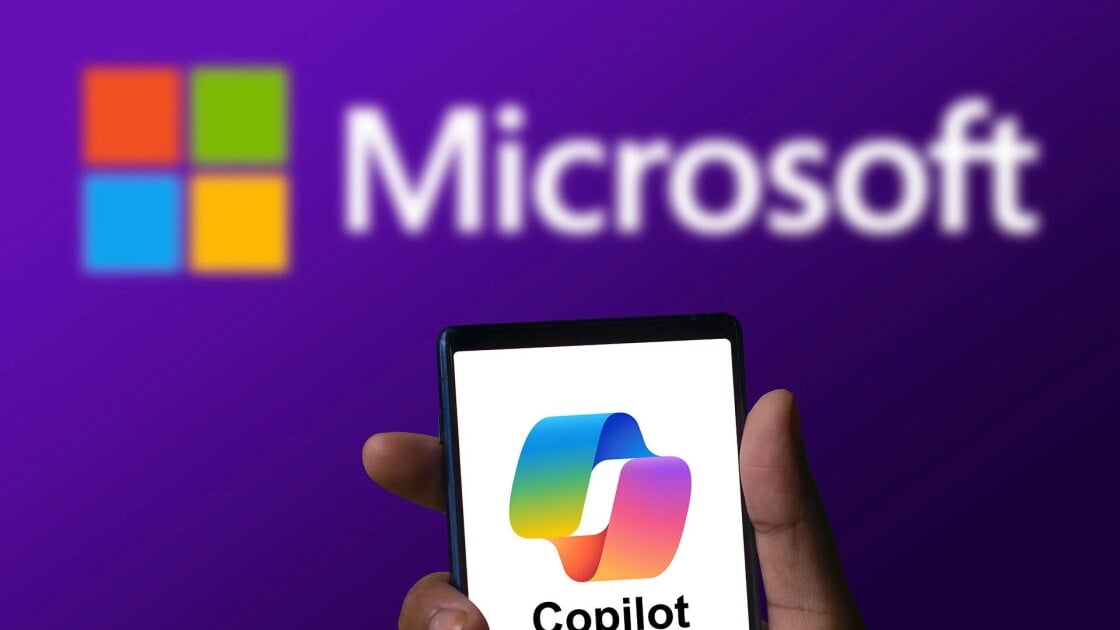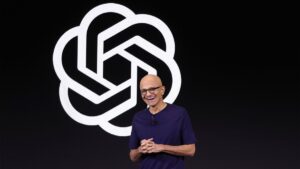Microsoft Reports AI Generates 30% of Its Code, While Meta Targets 50% by 2026

The Rise of AI in Software Development
Artificial intelligence (AI) is increasingly playing a significant role in various industries, particularly in technology. This shift is not only directed toward consumer products but also deeply embedded in the operations of major companies. A notable example comes from Microsoft, revealing that up to 30% of its code is currently produced using AI tools.
Insights from Microsoft
During the LlamaCon AI developer conference, Satya Nadella, Microsoft’s CEO, mentioned that a substantial amount of the code in Microsoft’s repositories is generated by automated software. This statistic emphasizes the impact AI is having on the software development landscape. Nadella highlighted that somewhere between 20% and 30% of the code in their projects is AI-written, showcasing a trend that is likely to continue.
When asked for insights on similar statistics, Meta’s CEO Mark Zuckerberg did not provide direct numbers. However, he shared an ambitious vision for Meta, predicting that AI could handle about half of its development tasks within the next year. This statement hints at a significant transformation in how Meta, and possibly the tech industry as a whole, approaches software creation.
Meta’s AI Developments
During the same conference, Meta announced the launch of a new standalone AI application aimed at competing with notable counterparts like ChatGPT and Google Gemini. This tool is designed to enhance AI integration with Meta’s smart glasses, but it also functions efficiently as an assistant on both Android and iOS devices. The initiative reflects Meta’s intent to leverage AI significantly in its operations and product development.
Google’s AI Initiatives
In October 2024, Google CEO Sundar Pichai revealed that AI is responsible for generating over 25% of the code at Google. This revelation is anticipated to garner further attention during Google’s upcoming I/O developer conference, which is set for May 20-21. Google’s commitment to integrating AI into its development processes signals a broader industry shift towards automation and efficiency.
Duolingo’s Focus on AI
In a recent statement, Duolingo’s CEO, Luis von Ahn, declared that the company is transitioning to an AI-first strategy. This plan includes increasing the use of automated tools within their operations, leading to a reduction in the reliance on human contract workers. This shift comes after the language-learning app previously downplayed its move towards AI in the past year, highlighting a rapid change in strategy.
The Broader Implications of AI
The integration of AI in software development raises interesting implications for the future workforce and productivity levels. Many tech companies are actively exploring how AI tools can streamline processes, reduce costs, and enhance innovation. The potential for AI to take over a more considerable portion of software creation could change the role of software developers, who may need to adapt to new tasks and responsibilities as AI becomes more capable.
Summary of Key Points
- Microsoft: Reports AI contributes up to 30% of code in its projects.
- Meta: Aims for AI to potentially handle 50% of development tasks within the next year.
- Google: Indicates that over 25% of its code is now AI-generated.
- Duolingo: Shifts to an AI-first strategy, aiming to reduce human workforce reliance.
This increase in AI’s capabilities in the tech industry reflects a broader trend towards automation. Companies are rapidly adopting AI tools to enhance productivity while also reshaping their workforce dynamics. As these technologies evolve, they promise to redefine the norms of software development and business operations.





